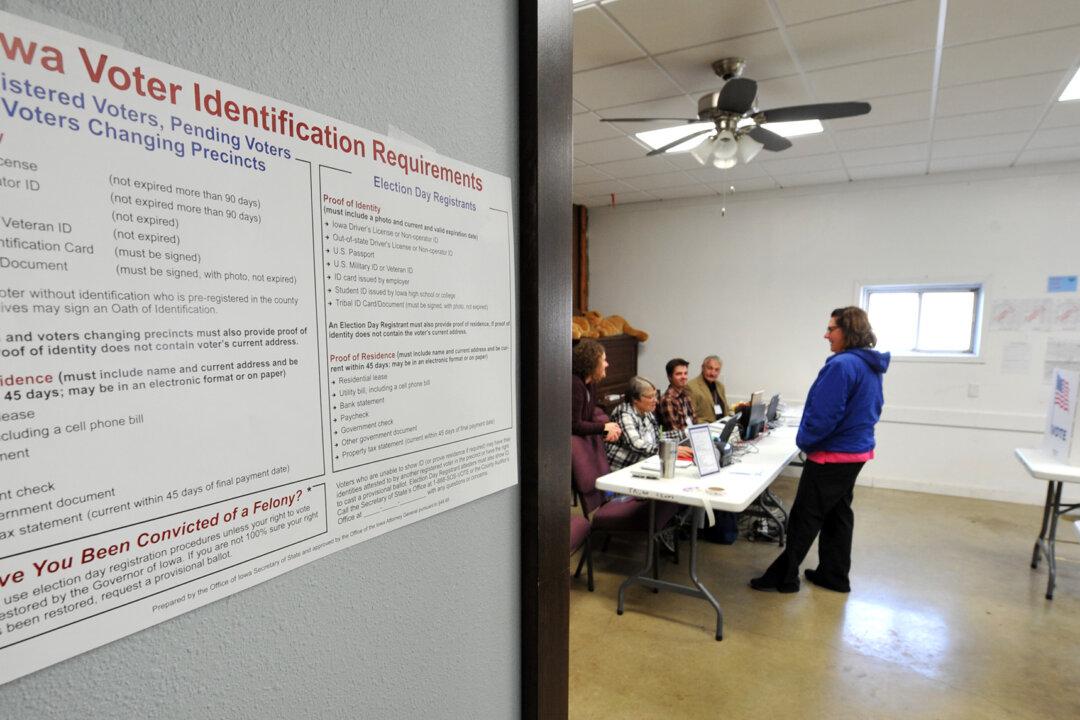Eight Iowa counties have more registered voters than their total voting-age eligible populations—by nearly 19,000—according to data revealed by Judicial Watch, a conservative nonprofit, but Iowa Secretary of State Paul Pate disputed Judicial Watch’s claim.
Pate, a Republican, says the numbers claimed by Judicial Watch are “patently false.”





